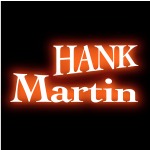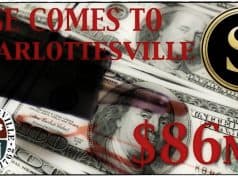On my honor I will do my best
To do my duty to God and my country
and to obey the Scout Law;
To help other people at all times;
To keep myself physically strong,
mentally awake, and morally straight.
—The Boy Scout Oath“On my honor as a student, I have neither given nor received aid on this assignment.”
—Standard Honor Code PledgeAnd for the support of this Declaration, with a firm reliance on the protection of divine Providence, we mutually pledge to each other our Lives, our Fortunes and our sacred Honor.
—The Declaration of Independence
 Throughout the annals of antiquity, honor incessantly emerges repeatedly, as a dominant premise in both literature and life. Homer’s magnificent poetry primarily concerns honor and man’s pursuit to achieve and maintain it. Shakespeare’s plays, the poetry of Rudyard Kipling and Sir Walter Scott, recurrently place honor and manhood at center stage as dominant themes. From the 17th thru to the early 20th century, men both in Europe and the United States frequently engaged in contests on “fields of honor” to preserve their manhood. When signing the Declaration of Independence, the American Founding Fathers “mutually pledged to each other our lives, our fortunes, and our sacred honor.” Since the institution of culture in the Garden, and woven into the tapestry of life since, honor and manliness have been indissolubly bound together. Frequently they were one and the same. Honor vanished was manhood absent, which illuminates much of the social and cultural ills currently besieging our nation. The importance of honor was such an essential characteristic of a man’s masculine uniqueness that a man would go to great lengths to win honor and equally expend great effort to thwart its loss. In civilization today, we almost nonchalantly toss the idea of honor around. We accord it a lot of lip service, but if you inquire of most as to “What is honor?” you will likely receive shrugged shoulders and verbal stammers. Society does however, instinctively comprehend and recognize honor. We are cognizant of both the presence as well the absence of honor. Honor today, is equivalent to integrity. That is presently what honor represents in our society today. Except for a few compartments of society such as those members of the military and police and fire departments, honor, as our founding fathers and those from the eras prior comprehended it, exists in a thin ghostly veil in the our present day culture. It is my personal belief that a contributing factor in the decline of manhood in America, is to a certain degree, the absence of a positive notion and healthy appreciation of the kind of honor that compelled, and held in check, the actions of our male ancestors. It has been stated, that honor is a gift that a man gives to himself. Ultimately, it is a gift to a culture as a whole. Too late, we are seeing the results of the issues created, with that gift removed.
Throughout the annals of antiquity, honor incessantly emerges repeatedly, as a dominant premise in both literature and life. Homer’s magnificent poetry primarily concerns honor and man’s pursuit to achieve and maintain it. Shakespeare’s plays, the poetry of Rudyard Kipling and Sir Walter Scott, recurrently place honor and manhood at center stage as dominant themes. From the 17th thru to the early 20th century, men both in Europe and the United States frequently engaged in contests on “fields of honor” to preserve their manhood. When signing the Declaration of Independence, the American Founding Fathers “mutually pledged to each other our lives, our fortunes, and our sacred honor.” Since the institution of culture in the Garden, and woven into the tapestry of life since, honor and manliness have been indissolubly bound together. Frequently they were one and the same. Honor vanished was manhood absent, which illuminates much of the social and cultural ills currently besieging our nation. The importance of honor was such an essential characteristic of a man’s masculine uniqueness that a man would go to great lengths to win honor and equally expend great effort to thwart its loss. In civilization today, we almost nonchalantly toss the idea of honor around. We accord it a lot of lip service, but if you inquire of most as to “What is honor?” you will likely receive shrugged shoulders and verbal stammers. Society does however, instinctively comprehend and recognize honor. We are cognizant of both the presence as well the absence of honor. Honor today, is equivalent to integrity. That is presently what honor represents in our society today. Except for a few compartments of society such as those members of the military and police and fire departments, honor, as our founding fathers and those from the eras prior comprehended it, exists in a thin ghostly veil in the our present day culture. It is my personal belief that a contributing factor in the decline of manhood in America, is to a certain degree, the absence of a positive notion and healthy appreciation of the kind of honor that compelled, and held in check, the actions of our male ancestors. It has been stated, that honor is a gift that a man gives to himself. Ultimately, it is a gift to a culture as a whole. Too late, we are seeing the results of the issues created, with that gift removed.
In modern times, honor would be akin to mutual respect. However, that term does not reflect the pop culture’s version of the now diluted “respect-me-simply-because-I’m-a-human-being” form of respect. The significance of mutual respect resides in the requirement of an individual to meet and maintain unyielding standards, in order to maintain honor within society. These standards are made possible through a few principal components. They are an honor code, an honor group, and the idea of shame. A code of honor sets forth standards that must be obtained for a person to receive respect within a group. Those rules etch the thoughts of honor into the stone of reality. Such rules make clear the requirements to earn honor (or respect), and how it may be lost, for honor that cannot be lost is not honor at all. If you are unable to meet them, you are viewed as deficient, despicable, and should be ashamed. An honor group consists of individuals who understand and have committed to live the code of honor. That everyone in the group has done this is understood by all other members of the group. Because honor depends on respect, an honor group must be a society of equals. Honor is based on the judgments of other members in the group, therefore the opinion of those members must matter to you, and they won’t if you don’t see them as your equals. Respect is a two-way street. While you might respect someone above you in the social pecking order, it’s hard to respect someone you think is beneath you. Honor groups must also be exclusive. If everyone and anyone can be part of the group, regardless of whether they live by the code or not, then honor becomes meaningless. The aforementioned military and emergency first responder groups qualify this notion. Prior to all out cultural assault commenced a couple of generations ago, the American church and their associated sub groups such as the sponsored Cub and Boy Scout programs, as well as programs such as AWANA’s and Royal Ambassadors, inculcated the notions of honor and check and balances in the younger male groups. Last but not least, is the component of shame. A person who fails to live up to the group’s code loses his honor — his right to the respect of the other honor group members as equals. Accordingly, the healthy sense of shame, or the recognition that a person has failed to live up to the honor group’s code is necessary for honor to exist. When individuals stop caring whether they’ve lost their right to respect in the group (i.e. living without shame), honor loses its power to compel and check individuals’ behavior. This is what we are now seeing in all aspects of our society. From the office of the president of the United Sates, all the way down to the Albemarle County Board of Supervisors. Shame and honor was once upon a time, an all-or-nothing game. You either have the respect of your peers or you don’t. Bringing dishonor upon yourself by failing to meet the minimum standards of the group (or showing disdain or indifference for those standards) means exclusion from the group, as well as shame. In the setting of a political, educational, athletic, military or public service type environment; honor serves as a dividing line between us and them. Between the honorable and the despicable.
The second form of honor is hierarchical honor. Hierarchical honor, isn’t about mutual respect, but rather concerns the extension of praise and esteem to those in authority. Once upon a time, this authority was earned or granted by one who showed himself superior. They achieved this through demonstrative virtue and ability. Through their rank or service to the community, or through the altruistic use of the power of the office they hold. This form of honor, by its nature, is hierarchical and competitive. This trait of honor crowns the man who not only lives the code of honor, but excels at doing so. Hierarchical honor is therefore equivalent to praise, esteem, and admiration. Honor is reputation. Honor as our ancestors established and enforced it, consisted of two parts: respect from the honor group (mutual respect) and praise from the honor group (hierarchical honor). Easily observable in all of this is the notion that honor depends on the opinion of others. You can have a sense of your own honor, but that isn’t enough — others must recognize your honor for it to exist. This is why it speaks volumes as to the state of an individual’s psychological nature, when so many make it abundantly clear that an individual’s honor is non-existent, and yet they chose to reject both the notion of shame, and fail to adhere to the requirements of the call of society.
Even in these modern 21st century times, people still yearn for those who have been empowered over them, to have a sense of honor. There is a God designed vacuum that yearns for noble rule. Though we do not wish to acknowledge it aloud, there resides within each human breast, the concept put forth in Proverbs Chapter 29, verse 2. “When the righteous are in authority, the people rejoice: but when the wicked beareth rule, the people mourn.” My sense of honor was instilled to me by the experience I had growing up in church and participating in the Cub Scouts and Boy Scouts programs, as well as the Civil Air Patrol. Those organizations contain all of the aforementioned ingredients that produce and encourage honor. This is why I am constantly perplexed by the lengthy and all-out attack on the modern church as well as the Boy Scouts program. It begs the question, why does a culture so desperately in need of this form of honor, work so feverishly to destroy the last two factories geared towards the production of the same? Until it becomes fashionable to be a man of honor once again, and when that quality is openly applauded instead of something to be scorned by one’s peers, then we may as well be prepared to continue our long slow descent into the cesspool of base behavior as found acceptable by the prince of hell.








Hank Martin looks at the Dumler situation and asks if "honor" is lost to America.
As exampled by opinions and actions of late, here is the current definition of Youthful Indiscretion, as seemingly defined by some local leaders.
Youthful Indiscretion- Felonies and other offenses that would normally be punishable by long prison sentences, or calls for resignataion or removal from office, if committed by an individual considered wealthy, traditional, pro-life, heterosexual, Christian, or a conservative or republican politician. Examples would be Driving Under the Influence, perjury and obstruction of justice and witness intimidation stemming from multiple sexual attacks on numerous women. Youthful Indiscretion may be applied as an absolute defense against all criminal charges when these acts are committed by far left liberal Democratic politicians.